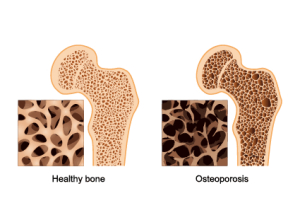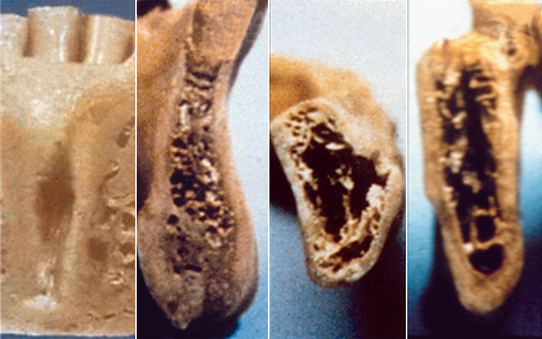Fractures and bone density in adult and aged athletes are among the medical conditions covered in HSC PDHPE. Fractures is the term used for any break of a bone in the body and fractures are more likely to occur in people who have poor bone density. Poor bone density ca n lead to osteoporosis. Predisposition to poor bone density and fractures include:
n lead to osteoporosis. Predisposition to poor bone density and fractures include:
- genetics
- female
- early menopause
- small size
- inadequate diet
- poor physical activity levels (particularly weight bearing exercise)
Fractures and bone density are greatly influenced by diet. Adult and aged athletes should eat plenty of fruit and vegetables in order to get all the nutrients in appropriate amounts that are required for health bone density and to avoid fractures. Among the key nutrients for good bone health are:
- Calcium
- Vitamin D
- Phosphorus
- Sodium and
- Protein
Sports participation options for adult and aged athletes with fractures and bone density issues
Poor bone density and osteoporosis limit the sport choices for adult and aged athletes. People with poor bone density should avoid contact sports or sports that involve powerful changes in direction that place large stress on bones. Sports such as: martial arts, rugby league, football, or ice-hockey should be avoided. While the following sports are examples of options available for adult and aged athletes with bone density issues:
- Cycling
- walking
- golf
- tennis, and
- swimming
In addition to this, there are particular forms of physical activity that are beneficial for people with poor bone density that will improve bone density and help avoid unwanted fractures. Weight bearing exercise, such as walking and running, have a positive affect on bone density as the weight going through the bones causes a physiological adaptation – increased bone strength through increased bone density. Just like your muscles, bones adapt to the stress placed on them. But it is important that this stress only be enough to cause an adaptation and not enough to cause a fracture. Resistance training is also very beneficial for bone density, and when performed with proper supervision and correct technique poses minimal risk to the adult and aged athlete with bone density issues.
If an adult or aged athlete has a fracture they should not participate in any sport that uses the injured bone, or that may cause the injured bone to hit or further injured. It is generally advised that people with a fracture stop sport until the fracture is completely healed and a GP says it is ok to participate.

